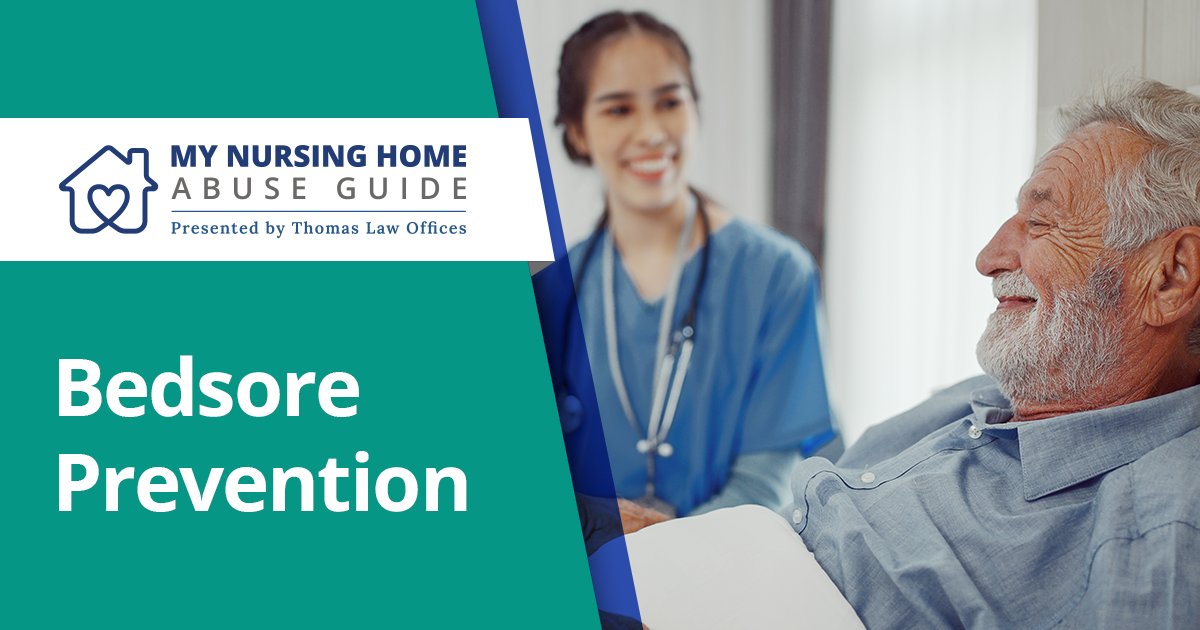
A common question family members of nursing home residents will ask after finding out that their loved one has pressure ulcers like this is if they’re preventable. The answer is a resounding yes. While we’d certainly recommend you follow up with a healthcare professional for specific guidance on avoiding these sores in your particular situation, we’ll cover some of the most commonly recommended bedsore prevention measures we’ve compiled below.
Steps To Minimize the Chances of Pressure Ulcers Occurring
Since individuals who are most prone to bedsores or those who have limited mobility or no ability to move about at all, caregivers must do the following to minimize the chance of those in their care developing this potentially deadly condition:
- Keeping skin clean and dry: Skin can become dirty from sweating, a person not taking regular showers, using the bathroom on oneself, etc. Maintaining adequate hygiene greatly reduces the potential for bedsores.
- Regularly changing clothing and linens: From body fluids to wear and tear, eating and drinking in bed, etc., all of these may result in undergarments, outer clothing, and pillowcases or sheets becoming soiled. Filthy clothes or bedding rubbing up against a nursing home resident’s skin for too long, for example, can cause pressure injuries to appear on the skin, so ensuring they’re regularly changed is key to minimizing bedsores.
- Elevating body parts: Prolonged exposure to the same surface, whether a chair, bedding, etc., tends to cause bedsores to develop. Using pillows or cushions to elevate areas of the body prone to these sores or having them serve as a buffer between oneself and the surface beneath them can reduce the chances of this condition developing.
- Moving patients: Bedsores develop because a significant amount of a person’s body weight is concentrated in one particular area for an extended period. Should a bedridden or wheelchair-bound person be unable to change positions every hour, it’s critical that whoever cares for them does so to minimize the chances of a decubitus ulcer emerging.
- Asking about new, different sensations: Provided a patient is verbal, it can go a long way if their caregiver occasionally asks them about whether they’re feeling anything new along their skin or in their bodies. Some examples that can be given to help a resident hone in on what may be different may include stinging, burning, itching, hot/cold fluctuations, etc., on their skin. Additionally, since conditions like staph infections are often accompanied by nausea and other similar symptoms, asking about how they feel in other ways (other than along their skin) is also important.
- Performing regular skin checks: Whether a ward is non-verbal or not, it can be helpful if employees at nursing homes and anyone else caring for a member of a vulnerable population regularly check that person’s skin for signs of any issues like decubitus ulcers. Why? Well, some individuals may have underlying diseases like diabetes accompanied by neuropathy, a condition that may lead to an inability to feel certain sensations. In that case, asking a person if they feel something such as one of these sores may be impossible, depending on where it’s located along their body.
We hope that the approaches to bedsore prevention described above help you or someone close to you avoid this debilitating (and potentially deadly) condition.
However, it’s always best to err on the side of caution and consult with a doctor if you’re unsure if the strategies used to prevent bedsores are the right ones.
